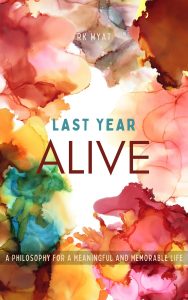I mentioned a week ago that after Karamazov, I wanted a bit of light a fluffy reading for a change. So I picked up Frankenstein by Mary Shelley. Obviously.
I have now read the novel, and as always, here is my professional opinion about it:
The book is absolutely brilliant.
And other notes:
- I imagine that people who have only heard of the book but haven't read it might assume that Frankenstein is the name of the monster. It's not. It's the name of the monster's creator. The monster never gets a name, though Frankenstein calls him/it "the devil", "the daemon", "the wretched thing", and other similar non-human terms. One might think that Shelley should have had the name of the monster as the title of the book, but Frankenstein is the main character due to his extremely long character arc, and therefore, the title is exactly right. What's more, he's the one who, through his actions, is the cause of everything that happens in the story.
- I had the 1831 version that M. Shelley had edited considerably compared to the 1818 version. I've heard that the original version was more feminist, and therefore, I'm glad that I had the better version and didn't have to risk hating the book due to its original sociopolitical rhetoric.
- The book is about the human need for friendship, which the monster displays most profoundly, suggesting that though his/its body is not that of a human, he/it might possess a soul that is. (While simultaneously being able to commit hideous, inhuman crimes. So go figure.)
- The book is also about the risks of being a god: with great power comes great responsibility.
- Most movies and illustrations get the monster's appearance completely wrong. Why do they portray him/it as green? He's/it's yellow in the book. And has long black hair. And definitely no screws holding it all together. Seriously, the monster is so much more terrifying and creepy-looking in the book than anywhere else! I've only seen one accurate illustration, and that's the cover of Frankenstein: The 1818 Text published by Penguin Classics. (But don't get that one, it has the original text with the sociopolitical rhetoric which, I assume, destroys the story completely. But the cover, I have to admit, is great; it refers to one part of the story where the monster has a reverse-Narcissus moment.)
- Are all monsters (in human form) born out of a childhood without a mother?
- The story is partly set in Geneva, one of my favorite cities in the world. I loved the way the narrator brought the scenery - the lake, the mountains - back to my mind.
- Poor Victor. Everything he loves dies.
Anyway, Frankenstein (the 1831 version) has turned out to be yet another example of excellent literature that refutes my prejudice against female writers.
RK

